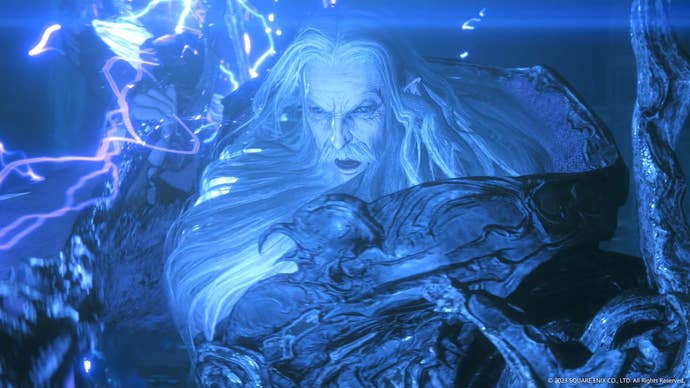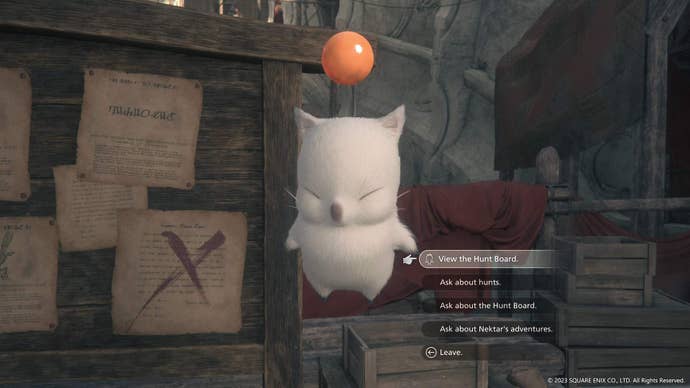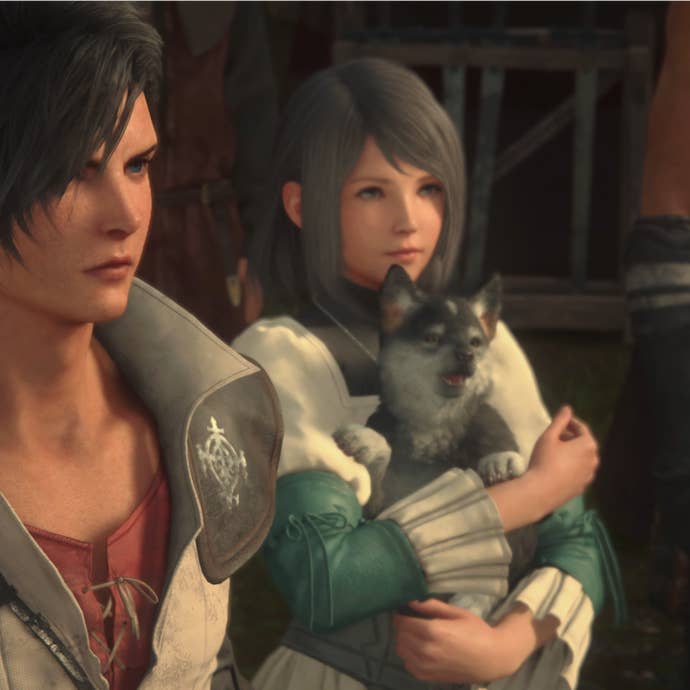[ad_1]
The weeks after the launch of a new Final Fantasy they are always filled with endless irritating debates and infighting on social media. And Final Fantasy 16, naturally, is no different. But I would say that this time, people are asking the wrong questions.
A quick scan of my Twitter feed (when it works, anyway) inevitably turns up all the spiel one would expect; there are questions about whether this is a ‘real’ Final Fantasy game, heated debate about whether the game’s female lead is well written, pondering over the game’s difficulty (or lack thereof), and a relatively new debate. – whether or not FF16 is ‘enough’ as an RPG.
Now, I have to put my hands up here: I am as guilty of this debate as anyone who participates in it. In VG247’s review of FF16, I singled out the game’s RPG credentials as a particular weakness, summing it up as a great action game, but not really a very good RPG. So is an RPG enough? I don’t know, maybe your mileage may vary, depending on what you’re looking for. However, outside of the broad strokes of critical analysis, I actually think that’s the wrong question.
Instead, let me propose this: should Final Fantasy 16 be an RPG?

I know how that question will fall on some. It will be blasphemy. But let’s put any preconceptions about what this series ‘should be’ aside, because, as discussed above on VG247, that’s a silly debate. I’ll even resist the urge to sarcastically say that one of the best Final Fantasy games (namely FF Crystal Chronicles: My Life as a King) isn’t an RPG at all). Instead, I just want to talk about FF16 in a vacuum on its own merits and say… It would probably be a better game if it was less of an RPG.
I’m not happy to say this, as someone whose livelihood is tied to a website dedicated to the RPG genre. But the advancement of RPG features is real and has been for a long time. How many games are stifled by their needs for inconsequential gear, stats, and menu work? later RPG siteWe jokingly say “everything is an RPG these days”, but that tongue-in-cheek refrain is also tinged with frustration, as game after game fails to question what makes the genre interesting or exciting. Sometimes this cross-pollination of genres leads to undeniable gold, but often it’s an exercise in box-ticking.

Which brings me to Final Fantasy 16. Checking boxes feels like a pretty slick way of describing what’s been designed here: mechanics, systems, and ideas built into this game that seem to be there because they’re supposed to be there. instead of being combined with the game that Square Enix’s Creative Business Unit 3 has actually created.
Much of this centers around the expectations of Final Fantasy as an RPG franchise, and the weakest elements of a great game are undoubtedly the hooks designed to give it RPG credentials.
FF games traditionally have party members, for example, and while FF16 only lets you control protagonist Clive Rosfield, you’ll be joined throughout the adventure with AI-controlled companions that are meant to evoke the feeling of fighting in a party. . FF15 was the same at launch, but constantly vocal, endlessly mobile, and eager to join in on team attacks, the members of the FF15 crew felt present. In FF16, you rarely feel like you’re fighting alongside someone, even though party members are there.

A lot of that is due to the battle system created for FF16. More Devil May Cry than Final Fantasy, it’s an excellent, snappy, well-rounded action game with a few more RPG tweaks, like having special moves on cooldowns and stat-driven hit power. This combat is really good – crunchy, satisfying, exciting – but it’s also something that informs most of the other design choices. For better and for worse alike.
Party members are likely to be so powerless, for example, because actually present AI companions like in FF15 would be too unpredictable for this optimized, combo-driven combat. FF16’s relatively low number of character abilities also seems like a connected choice; a sprawling RPG skill tree wouldn’t be a good fit and difficult to balance, so Clive’s moveset is pretty limited.
Many of these same arguments can be applied to many things. The treadmill of crafting and buying new gear feels muted because the real win here is getting better at action combat and learning better combos. Even the difficulty debate could be said to be related to this. The developers created an amazing action and combat system, but were concerned that it would alienate RPG players who aren’t as comfortable with action games. So they toned down the difficulty again, making the game trivially easy in the process.

This is even replicated outside of combat in things like pacing, where the fairly common RPG quests slow the story down to a crawl. Apparently all of this stuff had to be in the game to satisfy the breadth and depth expected of it. But strangely, FF16 is a slightly worse game.
All of this is to say: Final Fantasy 16 is a tremendously good game, but it’s arguably hamstrung by its RPG ambitions. It’s impossible to really know what happened during its development, but from the outside, it looks like your team had a great idea for a killer action/adventure title, but then felt compelled to have a bunch of RPG features in it to support the name. Final Fantasy.
Which brings us back to the topic of checkboxes. It feels weirder with FF16 because we’ve all been taught that Final Fantasy is an RPG series. But FF16 has to be judged on its own individual merits, not what the series has been in the past. And so, looking at the game and seeing that many of its weaker aspects have their roots in RPGs… one can’t help but wish it was less of an RPG. Even if that means a non-RPG Final Fantasy game.
[ad_2]